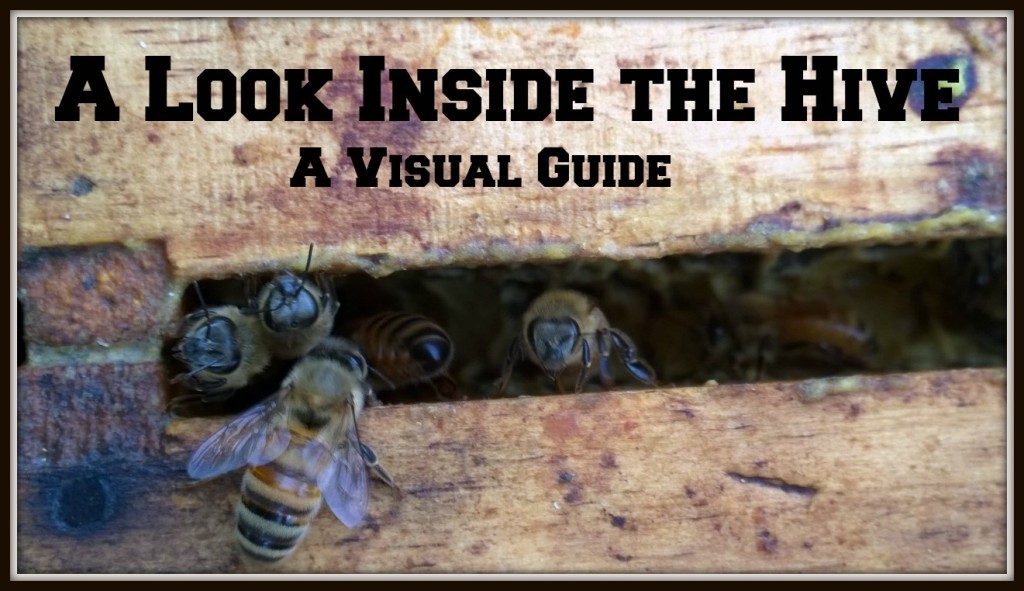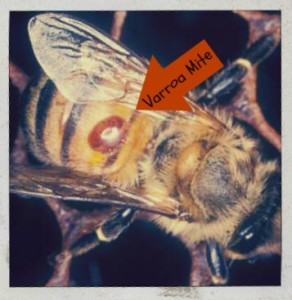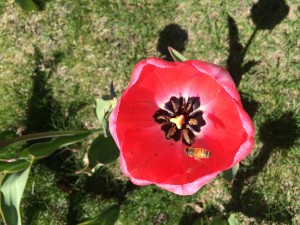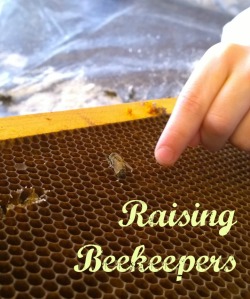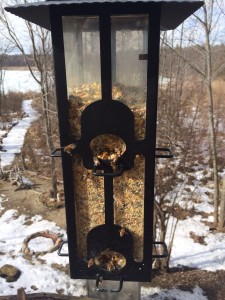Last week I was out in the apiary giving a future beekeeper a “hive tour” when I thought I saw the beginnings of queen cells in Mega Hive. During that trip to the hives I was really just showing this new person some basics, so I couldn’t really explore any further at the time. For two days I stewed and worried about these cells. We had seen eggs in this hive, but had never actually found the queen, so I wondered if she maybe died. Then I thought about how enormous that hive is and, despite our constant efforts to stay ahead of it, the bees are building like crazy, so I started to worry about a swarm. We had two days of rain, so I was just twiddling my thumbs, convincing myself that by the time we got out there again, the hive would be empty (dramatic, I know). We finally had a chance to get out to Mega Hive today and really take the time to look through each box. Here are some things we found…. Continue Reading
Are Your Nucs Normal?
I recently joined an online group for SE Beekeepers. (They were kind enough to let me join, despite my “west side” zip code). I’ve noticed a trend these last few weeks in comments from new beekeepers. They take different forms, but post after post I see, “Is this normal?” So whether you installed a nuc or a package this spring, here are some questions other newbies are asking:
- “I couldn’t wait 9 days and I opened the hive after 5, is this ok?”
- “Is it normal for queens to die in the first week?”
- “Is it normal for nucs/packages to swarm right away?”
- “My bees have only filled 3-4 frames, is this normal?”
- “Is it normal to see evidence of supersedure already?“
Breeding Better Bees
Of all the things potentially killing honeybees (pesticides, poor nutrition, colony collapse), disease is one of the areas where the individual beekeeper may have some impact. Most commonly, hives are plagued with varroa mites. Varroa mites are external parasites that attack both adult honeybees and brood. They attach and suck the blood of the bee. In cases of brood infestation, bees often hatch with deformities and/or weaknesses. Left untreated, mites can ultimately kill a colony. I recently watched a video on youtube and the man said, “Are you in denial about your mite problem? Repeat after me: I HAVE A MITE PROBLEM.” If you aren’t sure if you have mites in your bee yard, you probably do. I think they are more responsible for weakened colonies than we perhaps give them credit for.
Before Bees Have Their Coffee …
Dronings from a Queen Bee: Before Bees Have Their Coffee …
I’ve been keeping bees since 2008, and the overwhelming majority of the time, the bees I’ve been keeping are content and many times, practically welcoming.
The few times they haven’t been, there’s usually been a good reason—inclement weather, I’m robbing their honey, there is no queen bee (the most important bee in the colony), or they have a queen bee under incubation. Bees’ bee-havior—when conditions are appropriate—is usually so nonchalant that I even tell my bee-ginner beekeeping classes that they probably won’t need a smoker until later in the season.
I’m wrong. So very, very, wrong.
Death, then Life
I have had 50% success rate for over-wintering my bees. I like to take a glass-half-full perspective with this. It could be a lot worse for sure. The 50% that do not make it, I try to look at as a learning experience. I try my best to figure out what went wrong.
Let’s back up to a couple of months ago…Continue Reading
Why I Hope to Raise Beekeepers
I have two sons and it’s important to me to raise beekeepers. I mean this both literally and figuratively. Sure I’d love for the boys to grow up learning about and loving honey bees the way their father and I do, but more importantly, I’m interested in beekeepers of the figurative variety.Continue Reading
I Want to Kiss Them!
I have (so far) a 50% overwintering loss (as compared to last year’s 70% loss.) I’m delighted, and want to kiss them all. However, they’ve already reminded me that they are stinging insects. And turns out that I still swell up when stung, doggone it.
Because last year’s loss of 70% still stings, I’m delighted with 50%, especially because the colonies seem to be strong. And starving.
If you have surviving bees, congrats. Please consider providing feed for them, because there’s not much out there for them yet. I have a handful of crocuses up in the yard. They’ll be really well-pollinated crocuses as the bees are lined up at them. They’re also lined up at my neighbor’s bird, er, bee feeder. Must be something in that feed that’s very appealing, and thanks neighbor!
Here’s what I’m doing about feeding our bees this time of year …Continue Reading
Choosing your Ladies
It’s March already and spring-like forecasts are just about here! For seasoned beekeepers, that means we should be out checking for signs of life in our hives and planning any necessary replacement orders. For new beekeepers, the time to order is probably yesterday – but there are still plenty of places to order from if needed.
Here’s What I Know About Buying Bees
First, you can buy them locally if you connect with people and ask around. Sometimes we order too many and need to sell a package. Sometimes we produce nucs to sell and they have actually survived the winter and makes them stronger survivor stock. So, checking out the club’s website offerings is a great starting point and a great way to connect locally.
If you do plan to purchase from a business, the bees are typically sold in 2 or 3 pound packages with a queen. The queen can be marked or unmarked. The marking on the queen is located on her thorax (the body part next to her head). The colors of marked queens are done by the year and it is an awesome system for keeping track of the age of your queen.Continue Reading
Still Learning
Last Saturday I taught two sessions at the Kalamazoo Club’s annual bee school. This Saturday I’m teaching two at Albion’s bee school. I’m glad I’m an instructor because I learn so much.
I know that’s likely not what you want to hear from an instructor—that she’s still in the steep part of the learning curve—but continued education is one of the blessings of honeybees!Continue Reading
Keeping Bees is Just Plain Cool
We have one hive that is still alive. The Mountain Camp feeding method is working beautifully, but its success hinges upon a certain beekeeper (ahem, me) getting my butt out to the field to refill the sugar. Unfortunately, by the time life gave me the free time to do such a thing, two hives had starved out. I’m kicking myself daily for such an oversight.
The hive closest to our house, however, is still alive and strong. So this weekend, as we were watching the news report about sub zero wind chills and 45 mph winds, we started to worry about our remaining hive. I mean, we’re so close to spring! If only it could hold on a little longer!Continue Reading
